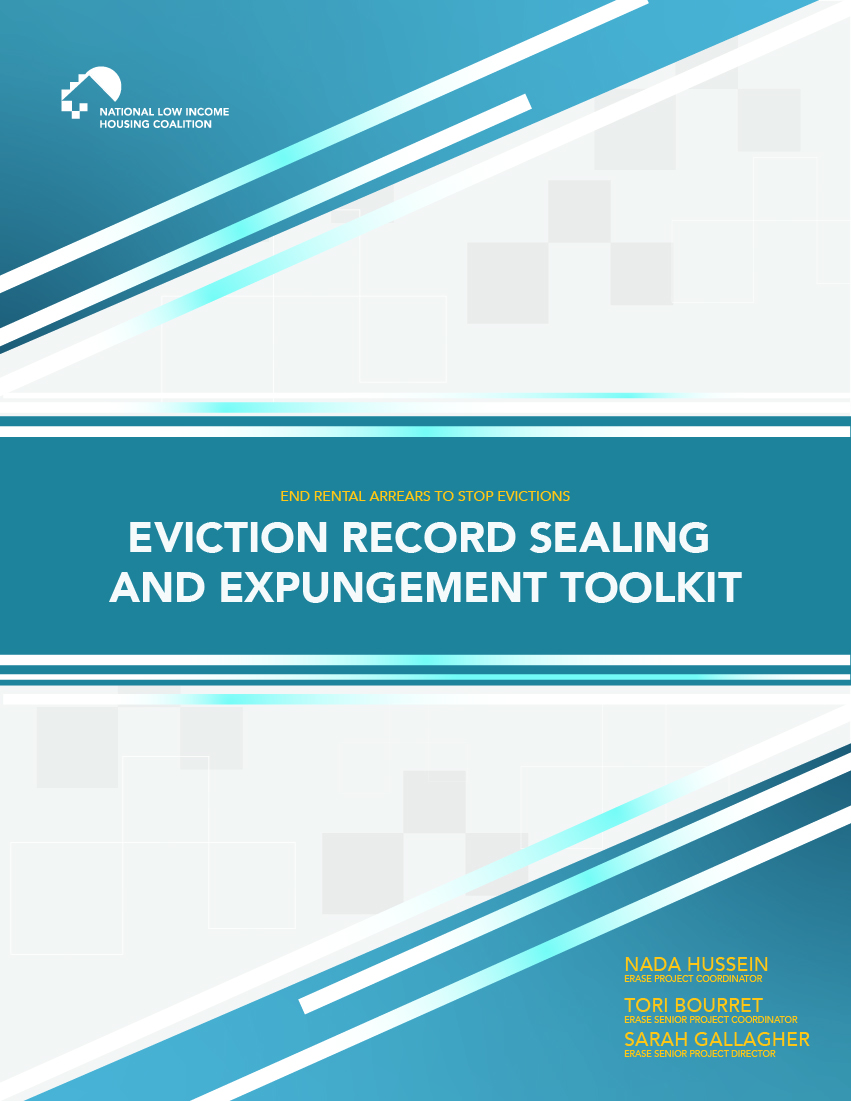NLIHC Releases Toolkit on Eviction Record Sealing and Expungement Protections
Apr 20, 2023
NLIHC released today a new “Eviction Record Sealing and Expungement Toolkit.” The result of a collaborative effort by members of NLIHC’s 2022-2023 End Rental Arrears to Stop Evictions (ERASE) Project Cohort, the new resource provides information about eviction record sealing and expungement protections nationwide, surveying record sealing and expungement legislation that is currently in place, identifying the core components of existing protections, and making recommendations for lawmakers developing new eviction record sealing and expungement protections in their jurisdictions.
Though varying according to state and local contexts, eviction record sealing and expungement protections are generally enacted to ensure that eviction filings do not impact the ability of tenants to secure stable housing. The new toolkit brings together a wide range of information about the status and impact of evictions in the U.S. and existing eviction record sealing and expungement policies, as well as answers to frequently asked questions.
As the toolkit shows, eviction filings can result in lasting and sometimes permanent consequences for individuals, especially for members of low-income and marginalized renter groups. Even in cases where an eviction judgement does not result in displacement for a tenant, the mere presence of an eviction on a tenant’s public record, especially as it appears in their credit history, can prevent a tenant from securing safe, stable, accessible, and affordable housing long into the future. For members of low-income and marginalized renter groups in particular, the effects can be detrimental to aspects of life well beyond housing, impacting their ability to access reliable transportation, quality schools, and well-paying employment.
To help minimize the negative impacts of eviction records for renters, the toolkit makes the following recommendations for lawmakers working to enact eviction record sealing and expungement legislation in their jurisdictions:
- Clarify the options available to individuals wishing to seal or expunge their eviction records.
- Ensure that protections cover all types of eviction cases.
- Require that eviction filings are sealed at the point of filing.
- Streamline eviction record sealing and expungement processes by reducing documentation.
- Limit public access to eviction data.
- Ensure that sealed records are sealed permanently.
The toolkit was authored by members of NLIHC’s ERASE team, which for more than two years has documented the progress of the U.S. Department of the Treasury’s Emergency Rental Assistance (ERA) program, working with state and local partners to conduct on-the-ground partnership development, capacity-building, outreach and education, and policy advocacy. In addition to ensuring that ERA funds reach the lowest-income and most marginalized renters, the ERASE project has tracked the enactment of state and local tenant protections aimed at diverting eviction filings and keeping tenants securely housed. Since the start of the pandemic, NLIHC has identified nearly 200 tenant protections that have been passed in response to the pandemic and its effects on housing.
Learn more about the ERASE Project at: https://nlihc.org/erase-project
